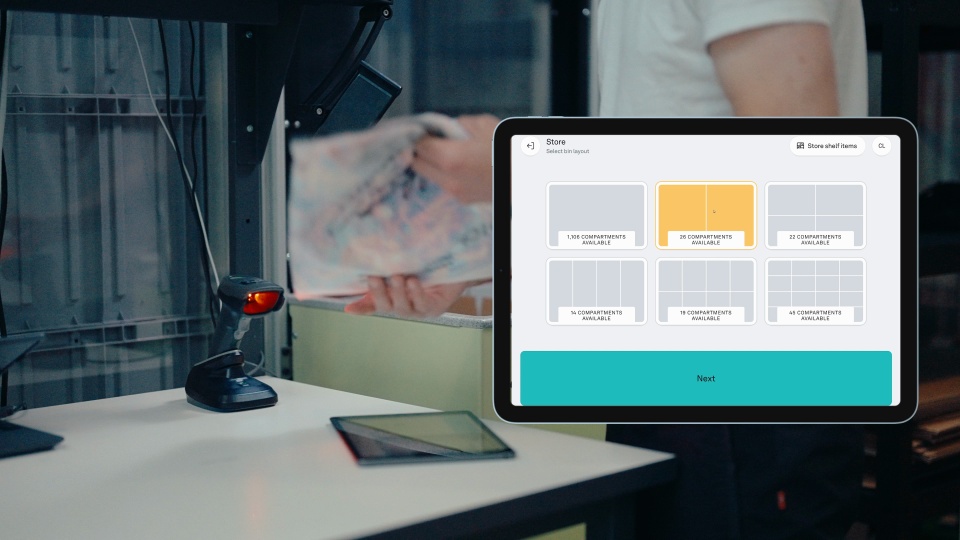It doesn’t have to be that way. When your systems work together, orders flow effortlessly from pick to ship, your team stays focused, and customers get exactly what they expect every time.
In this blog, we’ll show you how to bring more clarity, consistency, and control to your fulfillment operations so you can scale without the chaos, no matter the size of your team or the volume of orders.
Why Predictability Matters
Chaos might feel exciting for a short time, but it quickly wears you down and holds your growth back. Predictable fulfillment gives you more than just control over your warehouse, it shapes the entire customer experience.
Whether it’s a last minute campaign, a Black Friday rush, a flash sale, or an unexpected inbound delivery, knowing what’s coming puts you in a position to respond without panic. You’re not scrambling, you’re scaling.
With predictability in place, busy moments stop being something you simply survive. They become opportunities to sell more, ship more, and stress less.
Here’s what predictability unlocks:
-
Fewer last minute scrambles
-
Happier customers
-
Smarter scaling
It’s the foundation that lets you take on more business without fulfillment errors or burnout. Customers get what they ordered when they expect it, and your team works with confidence.
1. Get Clear on Inventory
Inventory is the heartbeat of your operation. When the data is off, it creates a ripple effect that hits every stage of fulfillment, from picking and packing to shipping and customer satisfaction.
The first step toward more predictable fulfillment is getting your stock in check. Regular stock takes may not be glamorous, but they’re essential. They provide a clear pulse on what’s actually in your warehouse, help keep your data fresh, and give you a much stronger foundation for accurate forecasting.
To go a step further, warehouse management tools can help you move beyond manual checks. With real time visibility, you can:
- Instantly spot stock discrepancies
- Monitor inventory levels as they change
- Catch anomalies before they snowball
- Save time spent digging through spreadsheets or walking the aisles
When your inventory data is reliable and up to date, your entire operation runs smoother. Your team can work with confidence, your systems stay aligned, and your customers get what they ordered, on time, every time.
2. Plan with Order Filter
Traditional warehouses often rely on wave picking, grouping orders by zones, cutoffs, or product types. It can work, but it’s rigid, time consuming to manage, and hard to adapt when priorities shift.
But with a warehouse automation system like Pio, planning becomes predictable. The Pio app, which is part of the Pio system, connects to your ecommerce platform, ERP, or WMS and replaces rigid wave picking with a smarter, more flexible approach. Using order filters, it builds dynamic, logic driven picking queues so the right orders are always picked at the right time.
Whether you're prioritizing overnight deliveries, VIP customers, or high volume B2B orders, filters help your team focus on the right tasks at the right time automatically.
With the right setup in Pio, you can:
- Group orders by type, shipping method, or customer tier
- Prioritize urgent orders without disrupting the rest
- Give your team a clear, structured picking flow with no manual sorting and no second guessing
It’s a flexible, modern alternative to wave picking. And it puts you in full control of the day’s workload.

3. Tighten Up Your Workflows
You can have the perfect plan, but if your tools aren’t connected, your fulfillment won’t be either. Fragmented systems, manual handoffs, and mismatched processes slow everything down and increase the risk of errors.
To bring true predictability to fulfillment, you need more than planning. You need execution that flows.
Modern warehouse systems with integrated pick and ship tools help unify the entire process. From the moment an order is released to the moment it’s scanned, packed, and handed to the carrier, everything happens within a single, connected environment.
In a well integrated setup:
- Orders flow through a guided, step by step process
- Every scan is logged in real time
- Your team is guided from pick to pack to ship
- No switching between platforms, paper slips, or manual syncing
Instead of relying on paper lists or gut instinct, your team follows a streamlined workflow through a smart, connected system. When pick, pack, and ship operate as one, your warehouse runs faster, stays more accurate, and becomes much easier to scale.
4. Use Data to Adjust in Real Time
No fulfillment plan stays perfect, especially when peak season hits. Backlogs build, orders spike unexpectedly, and even the best teams fall behind. But it’s not about eliminating disruption entirely. It’s about staying ahead of it.
That’s where real time data becomes a game changer.
When you have live visibility into your warehouse operations, you can see exactly where things are slowing down, where bottlenecks are starting to form, and which zones or teams need support. Instead of reacting too late, you can adjust in the moment before problems pile up.
Data driven fulfillment gives you the ability to:
- Reassign tasks and rebalance workloads
- Shift pick queues based on real time demand
- Make faster decisions without pausing operations
The real power of data goes beyond firefighting. It gives you trend lines, not just snapshots, helping you spot recurring patterns, uncover process inefficiencies, and continuously improve how your warehouse runs day to day.
With automation handling the repetitive load, your team finally has the space to focus on high priority tasks.
Predictable Fulfillment Isn’t Luck. It’s Built.
With the right systems in place, every day in the warehouse can feel less like a scramble and more like clockwork.
From clean inventory data to smart order filtering to real time visibility across pick, pack, and ship, a connected warehouse lets you run a fulfillment operation that’s faster, calmer, and ready to scale.
If you're exploring ways to bring more control and predictability into your fulfillment, consider Pio. It’s built for growing teams that want clarity and speed without the complexity.
The shift is already happening. Here’s why more brands are automating in-house.






